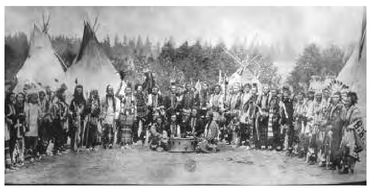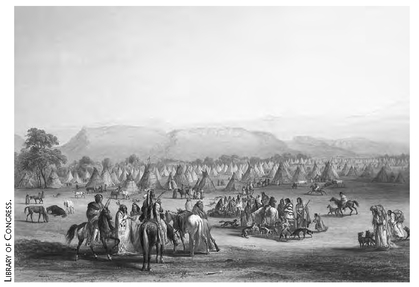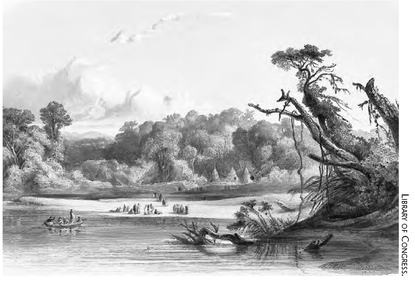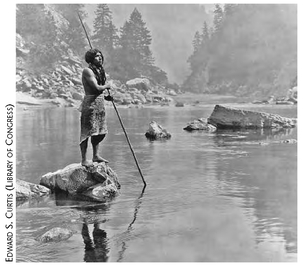Peak Everything (18 page)
Authors: Richard Heinberg


Throughout the book and film we get to know individual birds and learn their stories. We are witness to their courtships, alliances, disputes, births, illnesses, and deaths. Among others, we get to know Connor, the blue-crowned conure, who, though somewhat of an outcast because he is of a different species than the rest, maintains a dignified, kind presence; Tupelo, a victim of a virus that recurs each year in the younger birds, whom Bittner takes into his home, nurses, and becomes deeply attached to; and Mingus, an escaped cherry-head pet who joins the flock and then takes up residence in Bittner's cottage, eschewing life on the wing. Mingus has the infuriating habit of biting, but displays the endearing trait of bopping his head up and down in perfect time whenever Bittner plays the guitar and sings.
The most striking aspect of this narrative is having a window into parrot society, and into the emotional lives of individual birds. Here's a summary paragraph from Bittner:
Parrot society is complex, but I don't think it is so different from ours. It's a community made up of pairs and individuals. Mated birds squabble with one another and with other couples. Certain individuals have it in for each other. Most couples are in it for the long term, but some get divorced. Although the flock functions as a single community, nobody makes decisions for the flock as a whole. When a parrot thinks it's time to leave a foraging spot, he starts up a conversation about it. If the flock leaves, it's a community decision. Often, some birds will dissent from the general consensus and stay put.
The book brims with charming anecdotes about bird behavior. Just one: When a lone little budgie (“Smitty”) briefly joins the flock, nearly all of the other birds shun it. Connor, however, befriends the parakeet, letting it eat crumbs he drops and even occasionally holding
a piece of food with his foot so that the much smaller bird can bite into it. This is behavior that is difficult to explain in strict Darwinian terms. What was Connor getting from the relationship? Surely not enhanced survival chances or reproductive success.
a piece of food with his foot so that the much smaller bird can bite into it. This is behavior that is difficult to explain in strict Darwinian terms. What was Connor getting from the relationship? Surely not enhanced survival chances or reproductive success.

As I savored Bittner's account of the wild parrots, I couldn't help but think back on what I've read over the years about wild humans â that is, about descriptions of hunter-gatherer society, or life among tribal peoples at the time of first European contact.
Take for example, this passage from Baron de Lahontan conveying the statement of a Huron from the end of the 17
th
century: “We are born free and united brothers, each as much a great lord as the other, while you are all the slaves of one sole man. I am the master of my body, I dispose of myself. I do what I wish. I am the first and the last of my Nation...subject only to the great Spirit.”
th
century: “We are born free and united brothers, each as much a great lord as the other, while you are all the slaves of one sole man. I am the master of my body, I dispose of myself. I do what I wish. I am the first and the last of my Nation...subject only to the great Spirit.”
The analogy is inescapable: people who live a civilized life are like birds in a cage. As long as we stay within well-defined social bounds (and assuming we are lucky enough to have been born in a wealthy parasitic society, rather than a victimized poor one), we are rewarded with cheap food as well as comfort and convenience in a myriad of forms: television, shopping malls, glossy magazines. We have our seed cup, perch, mirror, and toys. What more could a bird â or human â want?
Moreover, life in the wild is unpredictable. There are hawks waiting to snatch us (life as a wild parrot, thrush, or finch is like living in an apartment building with neighbors who happen to be serial-killing cannibals). But, of course, we civilized humans have managed to extinguish just about all of the large predators who might otherwise make off with the occasional child, sick cousin, or doddering grandfather. The only predators we have to worry about now are other people.

NORTHWEST MUSEUM OF ARTS AND CULTURE
Salish men stand by tepees near St. Ignatius Mission, Flathead Reservation, Montana, July 4
th
1903.
th
1903.
Like wild parrot society, wild hunter-gatherer society could be fraught with conflict. Fights evidently arose over sexual jealousy, food, and etiquette.
According to Raymond C. Kelly's calculations in his book
Warless Societies and the Origin of War,
the typical rate of homicides among even the more peaceful foraging societies was in the range of 40 to 90 fatalities per 100,000 persons per year.
3
Compare that with the homicide rates of modern America (5.5 per 100,000), Germany (1.1), or the Netherlands (0.75). In civilized society we have police, laws, courts, and prisons to keep the lid on interpersonal mayhem. However, we also have occasional wars, which can be horrifyingly lethal (one in every fifty individuals died during World War II; the American Civil War had a similar fatality rate). If I were living in Iraq these days, I might find the statistical likelihood of violent death in hunter-gatherer society decidedly preferable to my own odds.
Warless Societies and the Origin of War,
the typical rate of homicides among even the more peaceful foraging societies was in the range of 40 to 90 fatalities per 100,000 persons per year.
3
Compare that with the homicide rates of modern America (5.5 per 100,000), Germany (1.1), or the Netherlands (0.75). In civilized society we have police, laws, courts, and prisons to keep the lid on interpersonal mayhem. However, we also have occasional wars, which can be horrifyingly lethal (one in every fifty individuals died during World War II; the American Civil War had a similar fatality rate). If I were living in Iraq these days, I might find the statistical likelihood of violent death in hunter-gatherer society decidedly preferable to my own odds.
For whatever reasons, most of us modern humans are like Mingus the parrot: we choose domesticated life. We like the cheap food, the controlled environment. Yet while life in the wild isn't easy, it has an ecstatic quality, one that Bittner notes among the parrots, and one that early explorers observed among the Native Americans and Aboriginal Australians. It is a quality that cannot survive the routines of either civilization or the cage.

Encampment of the Peikann Indians 1840-1843.
So how did we arrive at civilization in the first place? It's a long story, but one worth rehearsing periodically so as to remind ourselves why we traded away our freedom.
Every competent hunter-gatherer knows how to survive in the wild; therefore, if anyone in the band starts to lord it over his comrades, they can simply pick up and leave. No one can threaten to withhold food from anyone who is not an infant or an invalid. The situation differs in an agriculture-supported city. As we developed food production (horticulture, then agriculture â presumably because we had gotten so good at hunting, and our populations had grown so dense, that we could no longer easily support ourselves except by planting and harvesting), seasonal surpluses provided an incentive for raids, and thus for political organization to protect from raids (or to organize them). Individuals found themselves in a social pyramid composed of peasants who produced food and paid tribute (a portion of the crop was collected and stored by a managerial elite); a middle class composed of various specialists (soldiers, accountants, traders, artists, artisans, lawyers, scribes, and religious functionaries); and the decision-making leadership made up of kings and queens and their families.

Punca or Ponca indians encamped on the banks of the Missouri, 1840.
Thus with full-time division of labor came a new form of political organization: the state. On one level, it justified itself by managing seasonal surpluses and redistributing them in times of famine. But at the same time, the state was a protection racket: as sociologist Max Weber argued, it is the element within society that claims a legitimate monopoly on the use of violence.
4
Soldiers, police, prison guards, and executioners represent the business end of state power, without which the rest of the edifice could hardly function.
4
Soldiers, police, prison guards, and executioners represent the business end of state power, without which the rest of the edifice could hardly function.
As cities took up the space formerly occupied by untamed nature, the survival options of wild people diminished. Individuals gradually lost their ability to live outside their artificial, controlled environments. Of course, to this day everyone is still ultimately dependent on nature, but now only indirectly. We look to the social system for our sustenance; we chase money, not rabbits.
This disconnection from wild nature was especially acute in those who were not members of the producing class â the soldiers, managers, priests, poets, and kings who didn't work in the fields all day, and who therefore didn't have to pay such close attention to weather, soil, birds, wolves, deer, and gophers.
Hupa man with spear, standing on rock midstream; in background, fog partially obscures trees on mountainsides.

At first, these specialists and overlords made up a small minority of the population. In an agrarian society, surpluses are small and the work of food production must be done by muscle power, so that lots of human labor is needed. But with the industrial revolution, fossil fuels replaced muscle power, and so ever more people could be “freed” from agricultural work. The middle classes burgeoned, while the number of producers declined.
Other books
Lily Lang by The Last Time We Met
Werewolf Academy Book 5: Lost by Cheree Alsop
Endgame Novella #2 by James Frey
How to Slay a Dragon by Bill Allen
Huia Short Stories 10 by Tihema Baker
Blood, Salt, Water by Denise Mina
Breathe by Lauren Jameson
Awake by Daniels, Elise
Star Wars: Path of Destruction: A Novel of the Old Republic by Drew Karpyshyn
Style and Disgrace by Caitlin West
